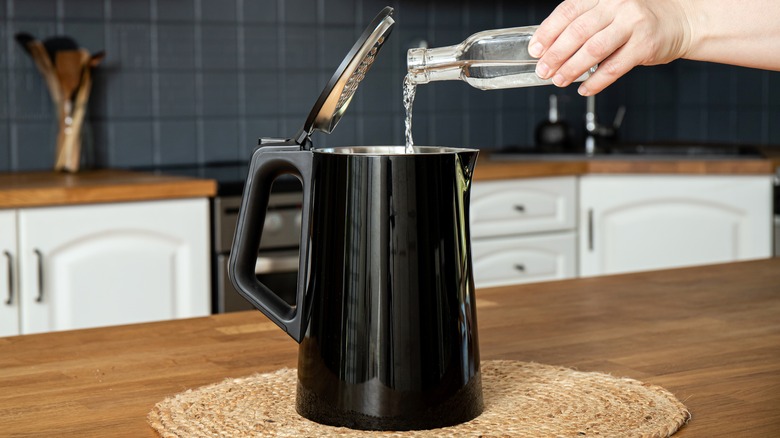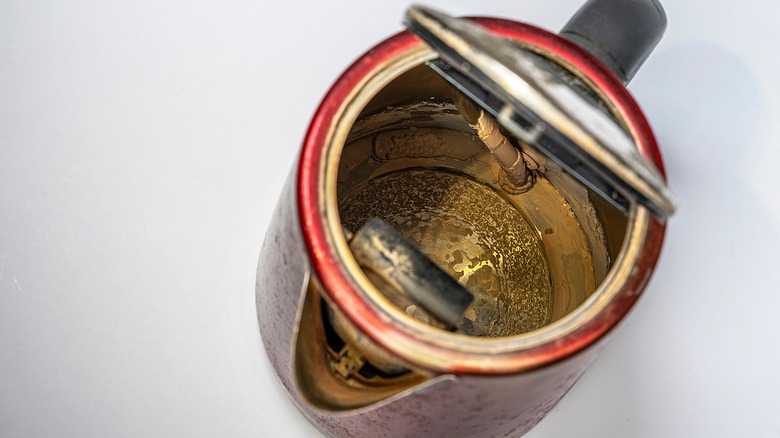How To Clean Your Electric Kettle With Just Vinegar
The electric kettle might be one of your home's most versatile and underrated tools. Available in price points to fit all budgets and with a minimal counter space requirement, a kettle can be used in many ways beyond making a cup of tea (ever tried recruiting your electric kettle to boil water for your ramen noodles or unclog a drain?). These handy appliances, which can boil water in a matter of minutes, serve us well and need to be properly cared for to ensure longevity.
The good news is that cleaning your electric kettle is as easy as pie, and you can do so using a popular household ingredient — vinegar. To cure that unsightly haziness, fill it with a mixture of one part white vinegar to three parts water and turn on the heat. Your kettle will do all the hard work for you, removing any mineral deposits or scaling that have occurred between deep cleans. Even the dirtiest of kettles can return to the pristine glory of their early days with a simple vinegar deep clean. Vinegar is a dynamic pantry ingredient, and it can actually be used to clean many things in the kitchen, so hold on to it between kettle cleanings.
Tips to get your electric kettle squeaky clean using vinegar
Once you've put vinegar and water in your kettle, turn it on and let it reach its boiling point. After boiling the water, turn it off and let it sit overnight while the kettle-cleaning dream team (vinegar and water combo) works its magic on those mineral deposits. Empty the kettle first thing in the morning, then refill it with water only; just bring it back to a boil, empty, and repeat. Running two cycles of water through the kettle will remove any lingering odors or tastes. Of course, if you still notice scaliness, follow up with the process each day until the gunk is totally gone. Once it's nice and clean, wipe out the kettle with a dry cloth and enjoy its shiny, scale-free interior.
So, what exactly is it that makes your kettle so dirty? The scaling that you see in your kettle is limescale buildup. This occurs naturally from the minerals in your water. This is even the case if you use filtered water. You should clean your kettle after every use, but depending on the water hardness in your area, it will likely need to be descaled every month or so (you might get longer between deep cleans if you don't have hard water or use your kettle infrequently).

